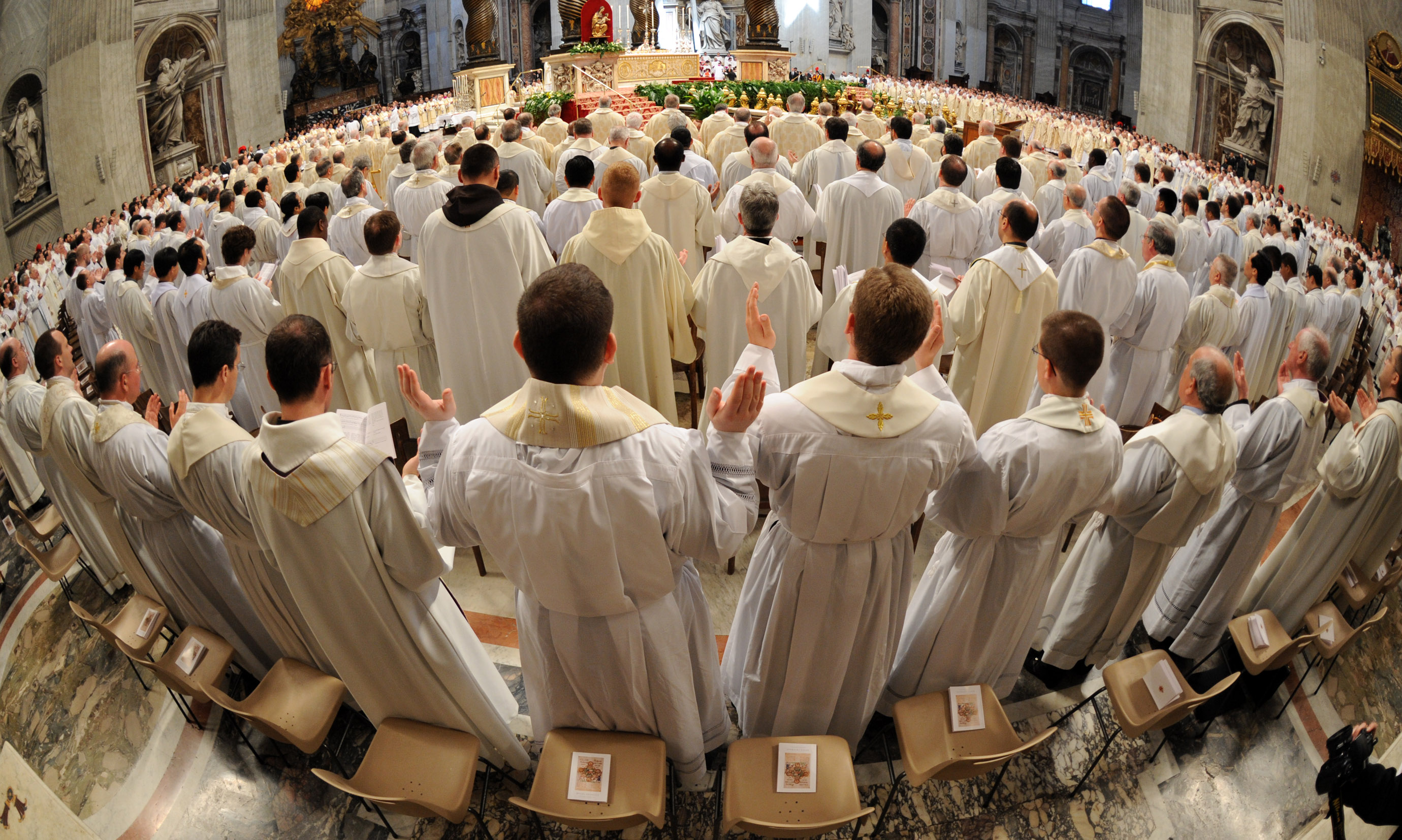Survey
The association of religious orders in charge of vocations promoted a survey that involved interviews with chaplains, spiritual directors and youths. The Country is experiencing a period of strong secularization coupled by a decline in the number of priests, monks and nuns. This can be a “propitious time” for “a fresh start”, with a Church that in fidelity to the Gospel responds to the “spiritual hunger that engulfs people’s existential void”

A survey on “Religious vocations in Ireland” has addressed the vocations crisis experienced by religious orders in relation to the Country’s present circumstances. It aimed “to highlight the opportunities that this particular context open up for the Irish Catholic Church.” The study conducted by Noelia Molina, Irish researcher, was commissioned by Vocations Ireland, the association of religious orders in charge of vocations. It surveyed the opinion of chaplains, vocational directors, spiritual directors and young religious.
Some figures. According to data on the Irish context, dating back to 2016, approximately 78% of Irish citizens identify as Catholic;
43% of them attend Mass on a weekly basis.
Diocesan priests dropped from 3,140 in 2014 to 2620 in 2016, and are older in age. The same downward trend was registered in religious orders (some 1800 priests in 2012, they were 2,160 in 2002); an even sharper decrease was registered among nuns, with a 23% drop over the past ten years (as compared to 2012, today they amount to less than 7000). For the first time one in ten Irish citizens said they have no religion (2016 figures). This makes ‘no religion’ the second largest group in the category of religious affiliation behind Roman Catholics.
An array of challenges. Ireland is still suffering the consequences of the scandal of sexual abuse inside the Church, that “shattered the very heart of the Irish Catholic Institution” with the typical after-effects of a “trauma” experienced across society and inside the Church, states the survey. The list of “challenges” the Irish Catholic Church is called to face includes “clericalism”, “manifested in the Church leadership”, whose main emphasis is “power, arrogance and superiority, to the detriment of those genuinely serving from the essence of the Gospel.” This occurs against the backdrop of a post-secularised society marked by the typical traits described by sociology.
 Compassionate pastoral care. But these difficulties can become an anchor for a fresh start, given need of “healing and spiritual transformation.” The Catholic Church can take initiative and develop a “culture of compassionate pastoral care”, whose traits are to show “forgiveness, express gratitude, be humble, show compassion.” As relates to the specific aspect of vocations, the research notes,
Compassionate pastoral care. But these difficulties can become an anchor for a fresh start, given need of “healing and spiritual transformation.” The Catholic Church can take initiative and develop a “culture of compassionate pastoral care”, whose traits are to show “forgiveness, express gratitude, be humble, show compassion.” As relates to the specific aspect of vocations, the research notes,
Young people entering religious life have not experienced “the abuse scandals”, but “there is a generation lost there.” On a different front, “the spiritual hunger that engulfs the existential void will continue to ask the deepest questions on purpose and meaning in life.” Thus “creating communal space for people to discuss these deep questions will be paramount.” Such spaces should include “schools of prayer and discernment”, engaging in groups in retreats, spiritual direction, lectio divina, prayer, meditation on Gospel scriptures” that may help people start exploring their passion for God. By contrast, “refusal to change, rigidity of thought,” and the need to go back “to the former glory of the Irish Catholic Church”, hinder “all opportunities” to recover confidence. To regain that “public voice” is not easy in a system “that shows signs and symptoms of trauma.”
“In peace with themselves.” As relates to the specific theme of vocation, respondents highlighted the importance to begin the discernment process “from the first contact until the point at which it took the person”, whichever that point may be, for even if “candidates” to the priesthood and to religious life “were to leave, they should leave in peace with themselves.”
The vocational process today is about “awakening” the faith
and “healing” the deepest wounds to restore freedom. For religious orders, the proposal of a vocational process implies, above all, “becoming visible, being present” among the young, and “finding ways creatively to share the faith story” because the faith story has not changed. There is need of “a rebranding and a re-marketing” about the way people understand God these days. Many interviewees engaged in the ministry of vocation said they occasionally experienced frustration due to lack of time available and to the fact of performing their service “part-time”, owing to other commitments for the congregation. Some of the interviewees also felt it was a “very disheartening ministry” to be in it “full time.”